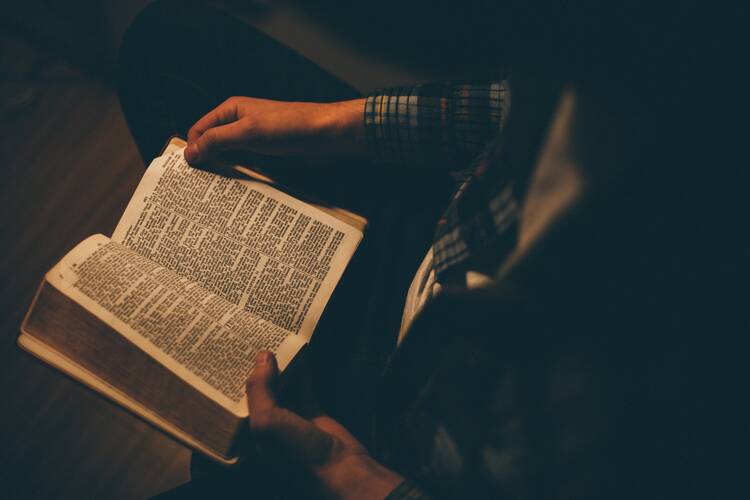Editor’s note: This article, a response to “The crisis in Catholic theology” by Grant Kaplan, is part of The Conversation, a new initiative of America Media offering diverse perspectives on important and contested issues in the life of the church. Read more views on this issue linked at the bottom of this article.
Reflecting on the current crisis of Catholic theology in U.S. Catholic colleges and universities and a related crisis in their theology departments, Grant Kaplan largely focuses on the Catholic identity of theology departments, presuming that if departments foster this Catholicity, then the Catholic identity of these colleges and universities will be upheld. Dr. Kaplan correctly emphasizes the need to prioritize Catholic theology, and I would add that theology departments could enhance Catholic identity through continued engagement with the Christian tradition and other disciplines, more integrated formation of students and scholars and service to the global ecclesial and human communities.
Catholic theology departments must ensure that students and faculty delve into the Christian tradition and bring this research into dialogue with contemporary methods and fields of study.
Catholic theology departments must ensure that students and faculty delve into the Christian tradition and bring this research into dialogue with contemporary methods and fields of study. Through investigation of fundamental sources and essential questions, Catholic theology must not simply transmit doctrines but interpret the tradition anew for each century. Such work requires the use of diverse methods and fields of study available in a given time. Theology thereby brings faith and reason into dialogue with one another to address the present world. According to Dr. Kaplan, integrating theology with other methods and disciplines has contributed to the loss of Catholic identity in theology departments. While Dr. Kaplan is right to be concerned about upholding Catholic theology’s primary place, theology departments also have a responsibility to take seriously the methods, fields of study and questions of today.
Theology departments could recenter on Catholic theology by giving greater attention to more integrated intellectual, spiritual and moral formation of students and faculty. Since theological study has moved from the seminary to the university, departments of theology must find creative ways to develop intellectual scholarship within lives of prayer and service. Among other things, more robust spiritual and moral formation teaches students and scholars practices of discernment, enabling them to reflect more deeply on their own experience and that of others. As Father Michael Himes said in his “Last Lecture” at Boston College, “theology involves allowing experience to give new insight into the tradition and allowing the tradition to give coherence and intelligibility to our experiences.” Forming students’ and faculty’s intellectual pursuits within the presence of the mystery of God will give Catholic theology the spiritual and moral depth necessary to be lasting and vital today.
Additionally, Catholic theology departments have a responsibility to serve the global ecclesial and human communities through both scholarship andtheological journalism. Dr. Kaplan claims that “without deeper engagement with the tradition, and without formation in practices that join the spiritual and the intellectual, departments of theology risk ‘producing more theological journalists than theological scholars.’” Theologians have the task of advancing scholarship and contributing to discussions with their colleagues in the theological guild; yet they also have a responsibility to bring the Christian tradition to bear on contemporary issues for a wider audience on various media platforms.
In the end, theology departments can enrich the central role of Catholic theology by continually engaging with the tradition, more intentionally forming students and faculty, and serving the worldwide community through theological journalism and scholarship. By adopting these practices, departments of theology will advance their own Catholic identity and that of U.S. Catholic colleges and universities.
More views on the crisis in Catholic theology:
- Grant Kaplan: The crisis in Catholic theology.
- Ligita Ryliskyte: The liberal/conservative divide is hurting theology departments. The way forward won’t be popular.
- Ty Monroe: Theology has no future if students can’t afford to study it.
- Christopher Mooney: Theology will have no future if it does not remain a distinct discipline.









